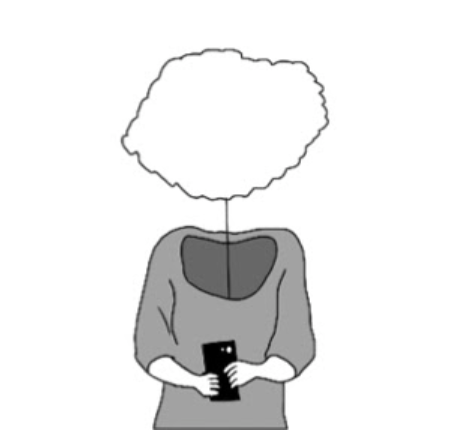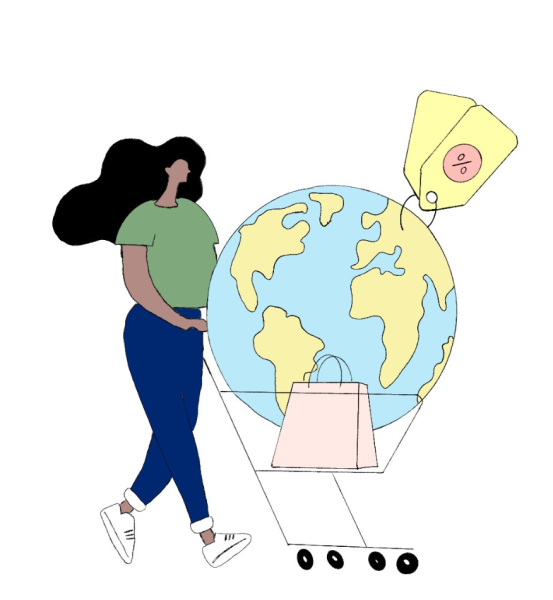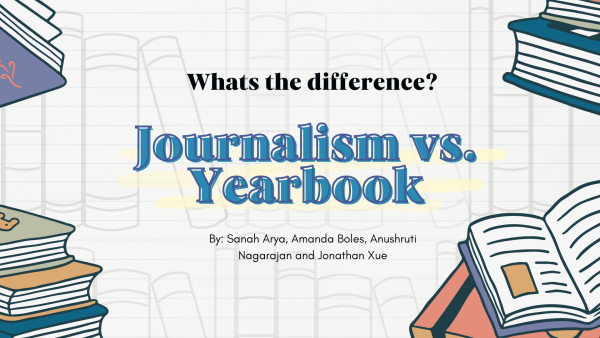Social media is promoting derealization
Social media is causing teenagers to indulge in a fake reality
Social media is taking over our lives and many do not realize it, American Psychological Association reported. People are constantly scrolling like robots and engaging more with online platforms than they are with their own community. Scrolling on social media for at least 10 minutes before going to bed has become a daily routine for me. The excessive and often nonsensical time I spend on social media is starting to reach a high level of concern as it should not have us wrapped around its finger.
In the past decade, social media has had such a heavy influence on my lifestyle, whether it be what I wear or how I feel or act. Sometimes though, social media feels like a chore —a set of tacit rules I need to abide by. It warps actuality, creating a fake reality as it further detaches us from the world.

This feeling of reality not settling is known as derealization. Derealization is loosely defined as a mental state where one feels detached and disconnected from their surroundings, WebMD reported. In fact, based on a survey of 154 students conducted at Homestead High School, 77.9% reported social media has caused them to believe in a “fake” reality. These numbers are shocking, as it shows that kids as young as 14 are disconnecting from the real world and struggling to connect with their surroundings.
Social media is a place where I see people romanticizing their lives. Scrolling through TikTok and Instagram, I see people constantly dressing up and going on fancy vacations, something most people cannot afford. Because of this, we often mistake the media for reality. People are then trained to think everyone looks put together at all times, which is not the case in the real world.
Additionally, the number of people diagnosed with derealization disorder have drastically increased since the pandemic, according to MentalHealthAmerica. Individuals have become more engaged with online platforms, completely detaching themselves from what is going on around them. This is both saddening and upsetting, as social media is starting to become an addiction for many. In order for us to work towards reducing these numbers, we need to educate others that not everything they see online is real.
Social Media is causing teenagers to disconnect from their surroundings and this is one of the biggest causes for derealization disorder. My greatest concern is that people are not aware they are experiencing symptoms of derealization for which the solution is solely a matter of raising awareness.
Anushruti is a senior, and she is thrilled to be one of the Opinion Editors for The Epitaph. During her third year in journalism, she hopes to make a lasting...











